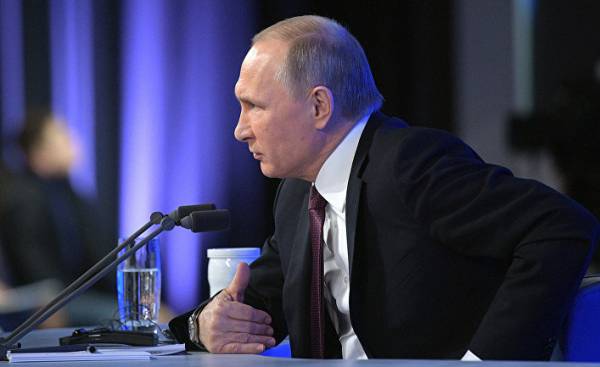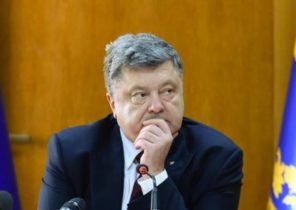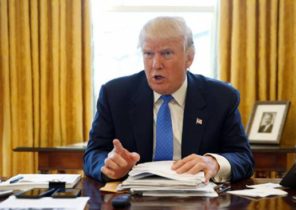
You can argue about what caused the deterioration of relations between Russia and the West: was the cause a lack of generosity on the part of the West after the cold war, including NATO’s decision to continue expansion to the Russian borders, or the impetus was political strategy but also the personal characteristics of Vladimir Putin. In any case, worrying results: Russia’s seizure of Crimea, the destabilization of Eastern Ukraine, the brutal military campaign in Syria on the side of not less cruel Syrian government, and Russia’s intervention in the American elections in 2016. The main question is — to quote the words of another famous Vladimir, Vladimir Lenin — what to do next.
And to do that it is necessary because Russia remains a major power with a modern army, a powerful nuclear Arsenal, advanced cyberpatriot, as well as significant reserves of oil and gas. In addition, it is one of the permanent members of the UN security Council. And while Russia is a potential danger, as Vladimir Putin abolished the system of checks and balances to their power. Despite this, Russia can act as a partner with limited liability in the middle East or the war on terrorism.
One can only wonder what motivates modern Russia, but Putin clearly wants to avoid revolution in the country. He would like to restore the sphere of influence of Moscow near the Russian border. He seeks to make Russia great again (it would have required real political and economic reforms, which he fears), but rather to make it felt great. He wants to be respected for his willingness to act decisively by military means in the name of national interests.
The administration of President Donald trump to respond to it with toughness. Russia should know that the US has the will and capacity to respond to aggression. Of course, deterrence is a far more preferable option compared to the defense, and the defense is a more preferable option compared to release. However, a policy of containment must accompany the understanding that the government implement those policies, willing and able to use force to protect their interests. This is a reason to provide Ukraine defensive weapons and to increase its military presence on the territory of those members, against whom can speak Russian.
In addition, the US needs to be prepared for the kind of “aggression in the grey zones”, an example of which can serve the actions of Russian-backed militias in the East of Ukraine. Such tactics cannot serve as a basis for the application of Article 5 of the NATO Charter on collective defense, but it is a threat to stability. You need to train the armed forces and to provide support in the field of intelligence to NATO members located near Russia’s borders, was unable to cope with any similar challenges.
Sanctions should remain one of the tools of American and Western policy, but they should not be abused. Ideally, Russia itself must be interested in maintaining and expanding economic ties, able to give impetus to the growth of its weakened economy. The aim was to motivate Moscow not to do that could undermine the stability and, as a result of the economic context. While sanctions should be designed in such a way that they can be easily modified in case if Russia’s behavior will improve.
America also needs to exercise restraint, though of a different plan. In relations with Moscow, Washington should focus on foreign policy and on politics in Russia. If you focus on the internal politics of Russia, it is unlikely to allow us to establish a relationship with her and almost certainly will become an obstacle to the improvement of our bilateral relations. If to make clear that the U.S. does not seek to achieve the overthrow of Putin, it can really help.
In addition, America needs to show more restraint inherent in the more traditional foreign policy. Should suspend consideration of a question on membership of Ukraine and Georgia in NATO: neither Georgia nor Ukraine can fulfill all the requirements of the Alliance, and movement towards making them members of this military unit not only further alienate and provoke Russia, but also impose on US additional obligations that they are unable to perform. In addition, it is also necessary to hold consultations and meetings at the highest level to discuss a range of issues, from the situation in Europe and the middle East to arms control and regulate activities in cyberspace.
In short, hardness is a necessary but alone insufficient hardness. It can and should be combined with certain guarantees. The purpose is not to achieve a cosmetic improvements in the General tone of relations, and to force Russia to demonstrate greater restraint, which in turn will lead to a true improvement of relations.
Richard Haass — President of the Council on foreign relations and author of “World in turmoil” (A World in Disarray).







